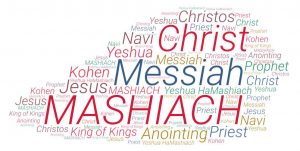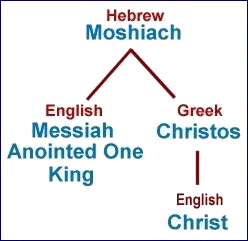
Shownotes
Wisdom-Trek / Creating a Legacy
Welcome to Day 1361 of our Wisdom-Trek, and thank you for joining me.
I am Guthrie Chamberlain, Your Guide to Wisdom
Mastering the Bible – Wisdom Literature and the Messiah – Worldview Wednesday
Wisdom - the final frontier to true knowledge. Welcome to Wisdom-Trek where our mission is to create a legacy of wisdom, to seek out discernment and insights, and to boldly grow where few have chosen to grow before.
Hello, my friend, I am Guthrie Chamberlain, your captain on our journey to increase wisdom and create a living legacy. Thank you for joining us today as we explore wisdom on our 2nd millennium of podcasts. Today is Day 1361 of our trek, and it is Worldview Wednesday. Creating a Biblical Worldview is essential to have a proper perspective on today’s current events. To establish a Biblical Worldview, you must have a proper understanding of God and His Word.
Our focus for the next several months on Worldview Wednesday is Mastering the Bible, through a series of brief insights. These insights are extracted from a book of the same title from one of today’s most prominent Hebrew Scholars, Dr. Micheal S. Heiser. This book is a collection of insights designed to help you understand the Bible better. When we let the Bible be what it is, we can understand it as the original readers did and as its writers intended. Each week we will explore two insights, and this week we finish up in the Old Testament and begin in the New Testament.
Mastering The Bible – Wisdom Literature and The Messiah
Insight Fifty-Three: The Focus of Wisdom Literature Is Character, and the Most Praiseworthy Character Comes from the Fear of the Lord
Most Bible readers who have spent time in the biblical wisdom material (Job. Psalms, Proverbs, Ecclesiastes, Song of Solomon) will not be surprised by the topic statement. So much of what one encounters in these books is oriented to personal life skills across a wide spectrum of areas and experiences. I think it’s worth mentioning, though, since we tend to think of wisdom literature like we do the advice column, Dear Abby. It’s more than that.
One of the things that distinguish biblical wisdom literature from simple advice is inspiration. God is behind what we’re reading, and God knows what leads to happiness or regret, failure or success, life, or death. Wisdom literature shows us by word and example how to cope with suffering, character flaws, and tragedy. Instead of providing situational suggestions, it tells us the truth about what is virtuous and what is not. It doesn’t try to make us feel good about ourselves. It lays out the path of the wise and the path of the foolish and doesn’t flinch from making sure we know which category we’re in.
Since wisdom is a lifelong pursuit, wisdom literature often finds its context in the home. Parents must guide their children (Proverbs 13:22, 24; 22:6), and children must obey their parents (Proverbs 1:8-9; 15:5). The marriage bond must be protected from adultery (Proverbs 5:1-14; 12:4: 19:14: 31:10-31). The family unit is tasked with passing on principles of morality, virtue, and justice. Children are the beneficiaries (or not) of the cumulative wisdom insights learned from parents. Since the home produces adults with (or without) sound character, it is the foundation of society - industry, relationships, commerce, and leadership. It is a fallacy to assume that the culture of a nation will be virtuous without personal virtue. It’s not an exaggeration to say that human stability depends on wisdom.
Foundational to the home are its leaders’ relationships with God. A constant focus of wisdom literature is reverence for God, his laws, and his design. Proverbs 1:7 famously begins with “Fear of the Lord is the foundation of true knowledge, but fools despise wisdom and discipline.”
The same thought is echoed in Psalm 34:11-12.
Come, my children, and listen to me,
and I will teach you to fear the Lord.
Does anyone want to live a life
that is long and prosperous?
Job 28:28 also reminds us...
And this is what he says to all humanity:
‘The fear of the Lord is true wisdom;
to forsake evil is real understanding.’
Ecclesiastes 12:13 ends with the words, "That’s the whole story. Here now is my final conclusion: Fear God and obey his commands, for this is everyone’s duty."
Wisdom literature gives us a lot to think about, but its orientation is crystal clear. The path to virtue is never personal gratification and focus on the self. A happy, rewarding life is only possible when people have sound character, and the core to motivation in that pursuit is the fear of God.
Insight Fifty-Four: The Words “Messiah” and “Christ” Mean the Same Thing
 Christians affirm that Jesus of Nazareth was the Messiah foretold by Israel’s prophets in the Old Testament. Some Bible students might find it startling, then, that the word “Messiah” occurs only two times in the New Testament (John 1:41; 4:25). The mystery disappears when we read John 1:41, where Andrew says to his brother Peter, "We have found the Messiah, which means 'Christ.'" John 4
Christians affirm that Jesus of Nazareth was the Messiah foretold by Israel’s prophets in the Old Testament. Some Bible students might find it startling, then, that the word “Messiah” occurs only two times in the New Testament (John 1:41; 4:25). The mystery disappears when we read John 1:41, where Andrew says to his brother Peter, "We have found the Messiah, which means 'Christ.'" John 4
:25 makes the same equation, but is that just John’s opinion?
The answer is no. The Hebrew word translated “Messiah” is Mashiach. It is related to a verb, Meshach, which means “to anoint.” Hebrew Mashiach, therefore, means “anointed” or “anointed one.” It is used in the Old Testament to refer to priests (Leviticus 4:16; Numbers 3:3), kings (1 Samuel 24:6), and, in context, a specially anointed deliverer (Psalm 2:2; Isaiah 61:1).
The New Testament was written in Greek, not Hebrew. The Greek word translated “Christ” is Christos. It derives from the verb chriö, which means “to anoint, or smear.” Consequently, Greek Christos (“Christ”) means “anointed one,” just like Hebrew Mashiach.
The above explains why the New Testament writers combined the term Christos with “Jesus” to produce “Jesus Christ” nearly 140 times (e.g.. Matthew 1:1). The reverse order of names (“Christ Jesus”) is found almost 90 times (e.g., Romans 1:1).
The reason for the ordering may be cultural. To a Gentile, “Jesus Christ” would have created the impression that “Christ” was the last name of Jesus. The word Christos also sounds like chrestos, a fairly common name in the Gentile world. By switching from “Jesus Christ” to “Christ Jesus,” Christos essentially becomes a title (“Messiah Jesus”), which would have helped a Gentile audience see the significance of the term. Interestingly, “Christ Jesus” is found in none of the Gospels, nor is it found in the writings of John. The earliest occurrence is in Acts 24:24, written by Luke, a Gentile. All the other occurrences come from the hand of Paul in his letters to gentile churches.

In either case, the theological messaging was the same. The man, Jesus of Nazareth, is presented as God’s prophesied anointed one (Matthew 2:4) who would heal the nations and save humankind from sin.
That will conclude this week’s lesson on another two insights from Dr. Heiser’s book Mastering the Bible. Next Worldview Wednesday, we will continue with two additional insights. I believe you will find each Worldview Wednesday an interesting topic to consider as we build our Biblical Worldview.
Tomorrow we will continue with our 3-minute humor nugget that will provide you with a bit of cheer and help you to lighten up and live a rich and satisfying life. So encourage your friends and family to join us and then come along with us tomorrow for another day of our Wisdom-Trek, Creating a Legacy.

If you would like to listen to any of our past 1360 treks or read the Wisdom Journal, they are available at Wisdom-Trek.com. I encourage you to subscribe to Wisdom-Trek on your favorite podcast player so that each day’s trek will be downloaded automatically.
Thank you for allowing me to be your guide, mentor, and most importantly, your friend as I serve you through the Wisdom-Trek podcast and journal.
As we take this trek together, let us always:
- Live Abundantly (Fully)
- Love Unconditionally
- Listen Intentionally
- Learn Continuously
- Lend to others Generously
- Lead with Integrity
- Leave a Living Legacy Each Day
I am Guthrie Chamberlain reminding you to Keep Moving Forward, Enjoy Your Journey, and Create a Great Day Everyday! See you tomorrow!